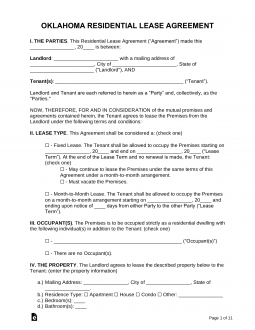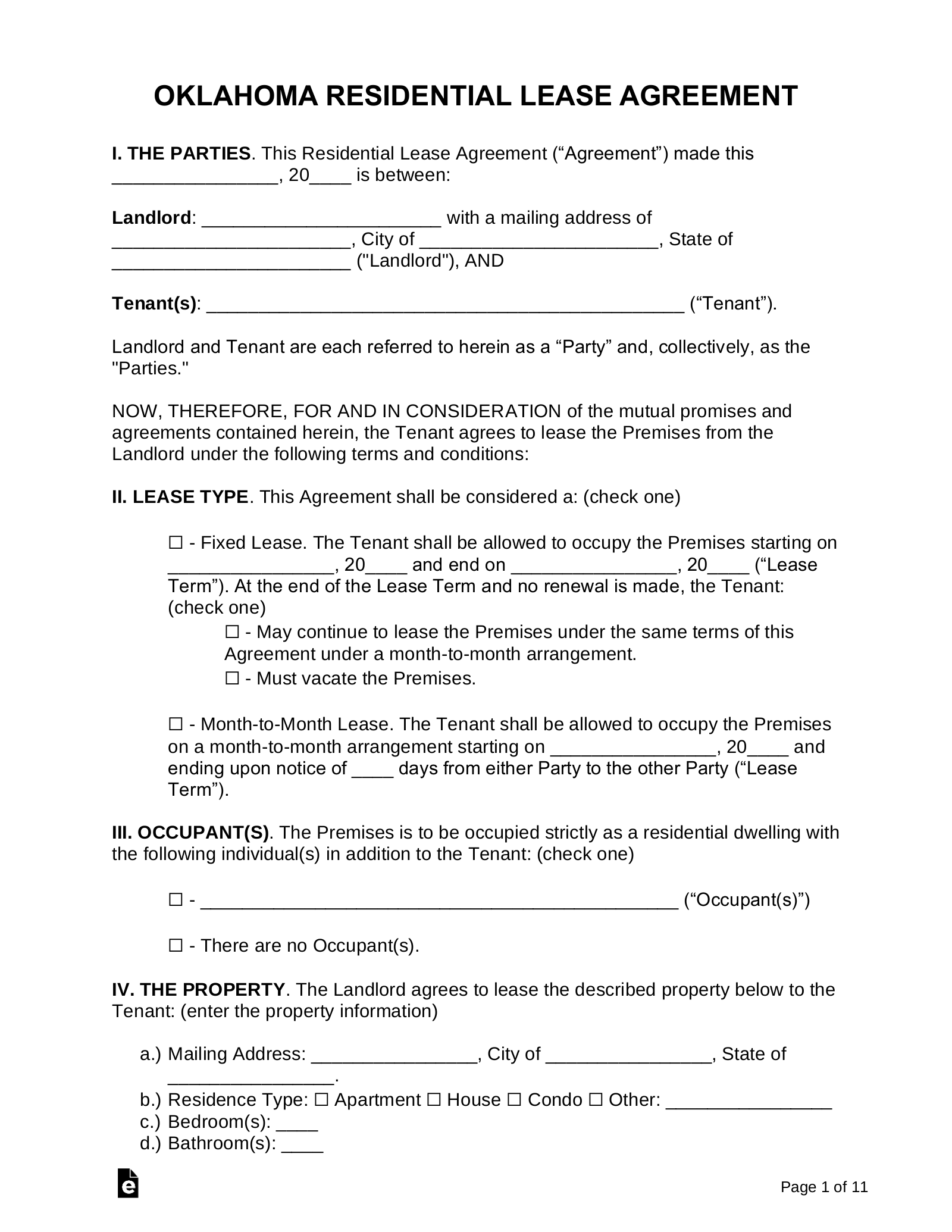Updated February 19, 2024
Oklahoma rental agreements are contracts written for landlords and tenants when renting commercial or residential property. For residential property, it is recommended to use the agreement provided by the Oklahoma Real Estate Commission (OREC). When accepting a new tenant, it is recommended a landlord use a rental application before authorizing a binding lease.
Table of Contents |
Agreement Types (7)
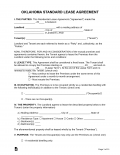 Standard Residential Lease Agreement – Commonly used landlord-tenant contract for a specified term, usually 12 months. OREC provides a standard version of this form. Standard Residential Lease Agreement – Commonly used landlord-tenant contract for a specified term, usually 12 months. OREC provides a standard version of this form.
Download: PDF, MS Word, OpenDocument |
 Commercial Lease Agreement – The act of a tenant operating as a professional service or business to occupy space that is not intended for livable use. Commercial Lease Agreement – The act of a tenant operating as a professional service or business to occupy space that is not intended for livable use.
Download: PDF, MS Word, OpenDocument |
 Month-to-Month Lease Agreement – Known also as a “tenancy at will,” that allows the landlord or tenant may cancel the arrangement at any time with at least 30 days’ notice. Month-to-Month Lease Agreement – Known also as a “tenancy at will,” that allows the landlord or tenant may cancel the arrangement at any time with at least 30 days’ notice.
Download: PDF, MS Word, OpenDocument |
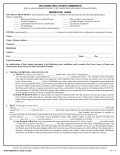 Oklahoma Real Estate Commission (OREC) Lease Agreement – The recommended lease by the State of Oklahoma. Oklahoma Real Estate Commission (OREC) Lease Agreement – The recommended lease by the State of Oklahoma.
Download: PDF |
 Rent-to-Own Lease Agreement – Standard residential contract with the added benefit of the purchaser having the added right to choose whether to buy the premises. Rent-to-Own Lease Agreement – Standard residential contract with the added benefit of the purchaser having the added right to choose whether to buy the premises.
Download: PDF, MS Word, OpenDocument |
 Room Rental (Roommate) Agreement – Form that allows the occupants of a shared home to create a written consensus of each roommate’s duties regarding the common areas and payment of rent, utilities, and other expenses to the property. Room Rental (Roommate) Agreement – Form that allows the occupants of a shared home to create a written consensus of each roommate’s duties regarding the common areas and payment of rent, utilities, and other expenses to the property.
Download: PDF, MS Word, OpenDocument |
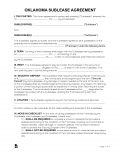 Sublease Agreement – Allows a tenant under an agreement to re-rent the space to another individual on the premises, usually with the required consent of the landlord. Sublease Agreement – Allows a tenant under an agreement to re-rent the space to another individual on the premises, usually with the required consent of the landlord.
Download: PDF, MS Word, OpenDocument |
Required Disclosures (3)
- Flood Disclosure Form – If the landlord is aware that the property has been flooded at any time in the last five years, they must disclose this information to the tenant.[1]
- Landlord/Manager/Agent Disclosure – The name and address of anyone authorized to manage the property or act on behalf of the owner must be included in the rental agreement.[2]
- Lead-Based Paint Disclosure – Pursuant to federal laws, landlords of residential structures built before 1978 must notify potential tenants of the possibility of lead paint throughout the premises.
Security Deposits
Maximum Amount – There is no statute in Oklahoma establishing a maximum amount for a security deposit. The landlord may request as much as desired.
Collecting Interest – Oklahoma state law does not require the landlord to collect or pay interest on the tenant’s security deposit.
Returning – The landlord must return any and all funds associated with the security deposit within 45 days of the end of tenancy.[3]
- Itemized List – Any portions of the security deposit applied to the payment of unpaid rent or the costs of damages must be itemized in a written statement provided to the tenant within 45 days of the end of the lease.[3]
When is Rent Due?
Grace Period – Rent is due on the date agreed to in the lease. There is no statutory grace period in Oklahoma. If the tenant does not pay rent when due, the landlord can issue a five-day notice to quit.[4]
Maximum Late Fee – There is no maximum penalty for late rent payments established under Oklahoma state law.
NSF Fee – A landlord can charge up to $25 for a bad check written by a tenant.[5]
Withholding Rent – If the landlord violates the terms of the lease in a way that materially impacts health and safety, the tenant may pay the costs of remedying the landlord’s noncompliance and withhold up to one month’s rent to cover these costs.[6]
Right to Enter (Landlord)
Standard Access – The landlord must give the tenant at least one day’s notice before entering the property for non-emergency reasons.[7]
Immediate Access – The landlord may enter the property without the consent of the tenant in the case of an emergency.[8]
Abandonment
Absence – Oklahoma state law does not set out a length of time that a tenant must be absent for a rental property to be considered abandoned.
Breaking the Lease – A victim of domestic violence, sexual violence, or stalking may terminate a lease without penalty by providing written notice and a protective order to the landlord within 30 days of the incident.[9]
Tenant’s Utility Shutoff – If the tenant’s failure to maintain utilities on the premises amounts to a violation of the lease agreement or their duties under the law, the landlord may serve a 15-day notice to vacate unless the violation is remedied within 10 days.[10]
Unclaimed Property – If the tenant leaves behind personal property of ascertainable or apparent value, the landlord must store the property for 30 days and send written notice to the tenant that the property will be deemed abandoned after that time.[11]

